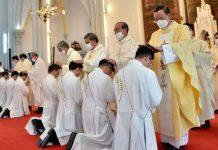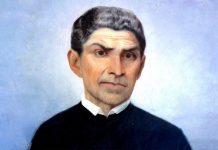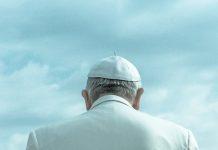Ukrainian church leaders have voiced scepticism over a planned Vatican “peace mission” to their war-torn country and have complained of being left in the dark about Rome’s intentions.
Newsroom (30/05/2023 19:45, Gaudium Press) “Although we’ve heard the news like everyone else, nothing has been said to us officially,” said Bishop Stanislav Szyrokoradiuk of Odessa-Simferopol.
“There’s constant war across our lands, as they destroy our cities and kill our people — and then we hear we should be talking peace. There’s a real danger Moscow’s propagandists will use this initiative to suggest Ukraine is resisting proposals by the Vatican. But what can the Vatican seriously propose in these conditions?”
The bishop spoke following a May 20 Vatican announcement that the pope had asked Cardinal Matteo Zuppi, president of the Italian bishops’ conference, to lead a mission to end the 15-month war.
In an interview, Bishop Szyrokoradiuk said Ukraine’s Catholic Church was not involved in the plan, and believed it was “naive” to expect a Vatican representative to “help bring peace.”
Meanwhile, a spokesman for Ukraine’s Catholic Church also denied knowledge of the Vatican initiative and said that Cardinal Zuppi’s mission had not been on the agenda of a May 23-26 synod meeting of the bishops of the Ukrainian Greek Catholic Church in neighbouring Poland.
“We know nothing about this mission, other than what we’ve heard from the media,” said Father Ihor Yatsiv, head of the Kyiv-based church’s Information Department. “Until we’re told something about its timing, itinerary, aims and terms of reference, it would be premature to offer any comment.”
Speaking to journalists, the Vatican’s press office director, Matteo Bruni, said Pope Francis had asked Cardinal Zuppi, a member of the peace and justice group Sant’Egidio, to lead a mission to “help ease tensions” and “initiate paths of peace” in Ukraine, as fierce fighting continued around Bakhmut and other points on the 900-mile-long war front.
The news followed a May 13 Rome visit by Ukrainian President Volodymyr Zelenskyy, who said he had requested the pope’s “condemnation of crimes in Ukraine,” and later rejected suggestions of Vatican mediation in an interview with Italy’s RAI broadcaster.
The mission was announced as leaders from the G7 group of the world’s richest democracies, meeting May 19-21 in Hiroshima, announced further sanctions against Moscow, and as the US government unveiled a new military aid package, its second in May, and agreed to begin training Ukrainian pilots for its advanced F16 fighter jets.
Preaching May 25 in St. Peter’s Basilica at the close of the Italian bishops’ assembly, Cardinal Zuppi said Ukrainians had been “engulfed in a fratricidal machine of war,” adding that it was the Catholic Church’s mission to accompany people “feeling hurt, aggressive and bitter because their hopes are exhausted.
However, a spokesman for Ukraine’s Catholic Kyiv-Zhytomyr Diocese said clergy in the capital also had received no notification of the 67-year-old Italian cardinal’s peace initiative.
“People have heard he plans to come and are discussing what this might portend, but we know nothing about when he might arrive and where he might go,” Father Oleg Stanislav said.
“Whatever the expectations, our only hope is that this terrible situation will finally end. While people will naturally support any move towards this end, we must also hope it happens in the open and is based on truth,” the priest said.
Meanwhile, Bishop Szyrokoradiuk said Iranian-made drones had struck Odessa on the night of May 24-25, adding that President Zelenskyy had set out Ukraine’s own 10-point peace plan, requiring an end to Russia’s “daily bombardments” as a prelude to negotiations. On May 26, Russian forces struck a clinic in Dnipro in central Ukraine, killing two and wounding 30 people, including two children, Ukrainian officials said as quoted by The Associated Press.
“The Ukrainian government has always said it was open to talks — but our territory must first be liberated and they must stop killing us and ruining our cities,” the Odessa-Simferopol bishop stated.
“Given Moscow’s current pact with the devil, I can’t see how it could be open to a Vatican peace mission. While we pray God will convert this aggressor, the war nevertheless continues, bearing ever more terrible fruits, as the same aggressor acts out its hatred in an attempt at colonization. We will never accept its conditions, and never agree to captivity as the price of peace,” Bishop Szyrokoradiuk said.
Church and government leaders in Ukraine and Eastern Europe have criticized previous Vatican diplomatic initiatives during the war and voiced disappointment that the Pope declined to condemn Russia and its president, Vladimir Putin, directly for the invasion.
In a May 23 speech, Cardinal Zuppi told the Italian bishops that war was like “a pandemic,” affecting both victims and aggressors, adding that Christians were “called to be peacemakers, even more so in the terrible storm of conflict.
However, in a May 22 commentary, Poland’s Catholic Information Agency (KAI) said the cardinal’s “extremely difficult” mission appeared to be conceived “against all hope,” and could be confined to negotiating the release of POWs and return of abducted Ukrainian children.
News of the Vatican’s peace mission coincided with an announcement by the Geneva-based World Council of Churches that it hoped to organize a dialogue between Ukrainian and Russian church leaders, after mid-May visits to Kyiv and Moscow by a delegation headed by its South African general secretary, the Rev. Jerry Pillay, a Presbyterian pastor.
In a May 23 interview on the WCC’s website, Rev. Pillay said his May 17 talks had not been easy with Russian Orthodox Patriarch Kirill, who had “expressed concerns” about a dialogue, but added that he hoped to establish a roundtable by October if Ukrainian and Russian churches made a “final commitment.
Bishop Szyrokoradiuk said he also had heard nothing about the WCC initiative, adding that the church in his partly Russian-occupied southern diocese could only “continue living and praying for peace,” while endeavouring to help people under fire in Kherson, Mykolaiv and other cities.
A staffer at the Vatican’s Kyiv nunciature, who asked not to be named, said that her office also had received no information about Cardinal Zuppi’s mission “beyond what was reported in the media.”
“We’re accustomed to hearing alarms and the sound of rockets all night, as huge numbers of people try to get to work and often seek shelter in a state of shock in the metro system,” the staffer said.
“The city’s defense system is working well, thank God, it has been able to intercept most rockets and missiles before they strike — otherwise conditions would be much more terrible. That’s the only reality most people are dealing with now.”
- Raju Hasmukh with files from UCAN and OSV news

































